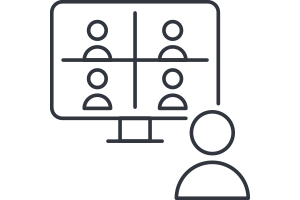예비 프로그램
세계협동조합대회 프로그램 내용을 아래에서 확인하세요. 대회 주제에 관한 세션들의 내용과 세션에 참여하는 사람들에 대해서 확인하실 수 있습니다.

사전녹화 세션

온라인 세션

현장 세션
November 30th
12:00 – Lunch time![]()
Speakers
Lunch speaker
16:00 – Welcome to the ICA 33rd World Congress Cocktail
Masters of Ceremonies
홍광석 Team leader of the NACF, and deputy Secretary General of ICAO
Speakers
Seoul Mayor (to be confirmed)
19:00 – CELEBRATING COOPERATIVE IDENTITY
Atautsikut / Leaving None Behind – by John HOUSTON, film producer, Canada
A lived story of a humanitarian project based on trust and the duty to help people. The importance of cooperatives and their identity (the identity of Inuit cooperatives is intimately linked to the very identity of the people who make them up), the capacity of these cooperatives to unite individuals and communities for a common good. Johan and in Inuit friend will speak from the bottom of their hearts.
December 1st
09:00 – OPENING SPEECHES BY DIGNITARIES
10:00 – ALL ABOARD FOR A JOURNEY INTO OUR IDENTITY![]()
Speakers
Bruno ROELANTS, Director general, International Cooperative Alliance
10:15 – INSTRUCTION FOR THE DAY![]()
10:30 – COFFEE BREAK AT THE EXHIBITORS’ FAIR![]()
11:00 – PLENARY 1 — EXAMINING OUR COOPERATIVE IDENTITY![]()
The cooperative identity unites us to work for the common good. Our values and principles give millions of people control of their own lives, their future, and serve as the strong foundation that sets cooperatives apart from other types of enterprises. How can our business model continue to be relevant in addressing today’s global challenges?
Speakers
First Name, Last Name, Title, Organisation, Country
11:30 – ROUND TABLE 1— EXAMINING OUR COOPERATIVE IDENTITY – A UNIQUE OPPORTUNITY![]()
12:30 – LUNCH AT THE EXHIBITORS’ FAIR![]()
14:00 – PARALLEL SESSIONS: EXAMINING OUR COOPERATIVE IDENTITY THROUGH…![]()
1.1.—THROUGH A STRONG COOPERATIVE BRAND![]()
Good brand management has been shown to support business growth. In cooperatives, through the COOP marque and the dotcoop domain name, branding is also a reflection of the cooperative identity, with its values and principles, helping to build loyalty and increase the number of members. Cooperative branding can highlight cooperative identity and its components that most resonate with the public, like commitment to members and the community, while giving cooperatives a competitive edge. What is the best way to manage cooperative branding? What are the best examples? And how can we measure its impact?
Facilitator
벤 레이드 O.B.E, member of the Board of Dot.Coop, retired CEO of Midcounties Cooperative, ICA Board Director , UK
Panelists
- First Name, Last Name, Title, Organisation, Country
1.2—THROUGH INCLUSIVE GOVERNANCE![]()
Participation and inclusion of cultural, gender and age diversity are fundamental for a sound cooperative governance, and they are at the heart of our cooperative identity. To keep these characteristics alive, we must continuously question ourselves: Are we inclusive enough? What can we do to keep the cooperative identity appealing to everyone? How do we make sure our governance practices are inclusive and welcoming to all?
Facilitator
마리아 유지니아 페레즈 제아 Chair of ICA Gender Equality Committee, President of ASCOOP, ICA Board Director, Colombia
1.3.—THROUGH EDUCATIONAL OPPORTUNITIES![]()
Facilitator
Onofre SOUZA, President of Organização das Cooperativas Brasileiras de Mato Grosso (OCB/MT), ICA Board Member, Brazil
1.4—THROUGH COOPERATIVE CULTURE AND SAFEGUARDING CULTURAL HERITAGE![]()
In 2016, UNESCO, via the German cooperative movement, recognized cooperatives as an Intangible Cultural Heritage of Humanity. UNESCO’s decision is an important acknowledgment of the dedication shown by millions of people working in cooperatives all over the world. What is the implication of this honour? How can we promote it to strengthen the pride in, and value of cooperative identity worldwide?
Facilitator
Stefania MARCONE, International Relations Director, Legacoop, Italy
1.5— THROUGH PARTNERSHIPS WITH GOVERNMENTS![]()
Many cooperatives have been created through grassroots campaigns. Others have been promoted and supported by governments as part of a country’s economic strategy. Others have successfully developed a partnership ecosystem with governments through public policy co-creation and co-management. It has been shown that such approaches can be effective in growing the cooperative movement, especially in rural and marginalised communities. What lessons can we learn from these approaches? How can we encourage more governments to consider these approaches as part of their strategy for a sustainable future for all?
Facilitator
KOH Youngkon, President, Korea Institute for Cooperative Development (KICD), Republic of Korea
COFFEE BREAK AT THE EXHIBITORS’ FAIR![]()
16:00 – PLENARY—WHAT EMERGES FROM PARALLEL SESSIONS? AN INTERVIEW WITH THE RAPPORTEURS.![]()
Facilitator
Martin LOWERY, Chair of the Congress Task Force and ICA Identity Committee, ICA Board Director, United States
Panelists
- S 1.1, Bernadette TURNER, Midcounties Cooperative, UK
- 엘리자베스 살라자르 S 1.2, Elizabeth SALAZAR, International Development Manager and Gender Advisor, NCBA-CLUSA, United States
- S 1.3, João MARTINS, OCB, Brazil
- S 1.4, Santosh P. KUMAR, ICA Director of Legislation, Belgium
- S 1.5, KIM Hyunwoo, Senior Manager, National Agriculture Cooperative Federation (NACF), Republic of Korea
16:45 – INSTRUCTIONS FOR DAY 2![]()
17:00 – END OF DAY![]()
19:00 – GALA![]()
December 2nd
09:00 – WELCOME WORDS![]()
09:10 – PLENARY 2 – STRENGTHENING OUR COOPERATIVE IDENTITY![]()
Innovation and entrepreneurship are more important than ever in facing today’s complex global economy. The people-centred cooperative model nurtures talent, creativity and encourages innovative ideas to create a more humane and inclusive society. How do we make our cooperative identity a competitive advantage in the global market?
Speakers
아도이아 멘디아 Deputy Lehendakari [Governor], Basque Autonomous Region, Spain
이니고 알비주리 랜다자밸 Director of Public Affairs, MONDRAGON Corporation, President, CICOPA, Spain
09:40 – ROUND TABLE—STRENGTHENING OUR COOPERATIVE IDENTITY—THE BEST OF IT![]()
This expert panel will discuss the question regarding whether cooperatives, by reinforcing their identity, have a unique business opportunity to innovate beyond current market conditions, for which there is ample evidence, including the financial recession of 2008, as well as, probably, the current economic crisis generated by the pandemic.
Facilitator
카리나 르우 Professional facilitator Canada
Panelists
- 아도이아 멘디아 Deputy Lehendakari [Governor], Basque Autonomous Region, Spain
- 이니고 알비주리 랜다자밸 Director of Public Affairs, MONDRAGON Corporation, President, CICOPA, Spain
10:40 – COFFEE BREAK AT THE EXHIBITORS’ FAIR![]()
11:10 – PARALLEL SESSIONS: STRENGTHENING OUR COOPERATIVE IDENTITY BY…![]()
2.1 BY TAKING ADVANTAGE OF THE DIGITAL AGE![]()
The digital economy is around us. It transforms the world as we know it. From the “new normal” introduced by COVID-19, business models are emerging motivated by positive social impact, sustainable development and inclusion of gender and cultures. However, the digital economy is profoundly disrupting the world of work. What must be done to remain a source of inspiration while respecting members and their common interest? How can cooperatives guarantee a bright future for workers while going digital?
Facilitator
Dr. Saji GOPINATH Vice Chancellor of Kerala University of Digital Sciences, Innovation and Technology, India
2.2 BY SUPPORTING AN ETHICAL VALUE CHAIN MANAGEMENT![]()
Facilitator
Marjaana SAARIKOSKi, Communication Director, SOK, ICA Board Director, Finland
00:40 – LUNCH AT THE EXHIBITORS’ FAIR![]()
14:10 – PLENARY – WHAT EMERGES FROM PARALLEL SESSIONS 2? AN INTERVIEW WITH THE RAPPORTEURS![]()
Facilitator
Martin LOWERY, Chair of the Congress Task Force and ICA Identity Committee, ICA Board Director, United States
Panelists
- S 2.1, Balu IYER, Regional Director Asia and Pacific International, Co-operative Alliance
14:40 – PLENARY 3 – COMMITTING TO OUR COOPERATIVE IDENTITY![]()
Inclusion and humanity are at the core of our identity, making cooperatives a valuable tool in the construction of positive peace. We respond to the needs of refugees, rebuild after natural disasters, look after the most vulnerable, and respond to the ravages of a global pandemic. These crises are constantly threatening an increasingly globalised economy. How can cooperatives work together to bring about positive and lasting change in the world?
Speakers
엘라 바트 founder of the Self-Employed Women’s Association of India (SEWA), India
16:10 – COFFEE BREAK AT THE EXHIBITORS’ FAIR![]()
PARALLEL SESSIONS: COMMITTING TO OUR COOPERATIVE IDENTITY FOR…![]()
3.1 FOR THE SURVIVAL OF THE PLANET![]()
Facilitator
Graciela FERNANDEZ, President, Cooperatives of the Americas, ICA Board Director, Uruguay
END OF DAY 2![]()
December 3rd
09:10 – PLENARY – WHAT EMERGES FROM PARALLEL SESSIONS 3? AN INTERVIEW WITH THE RAPPORTEURS![]()
Facilitator
Martin LOWERY, Chair of the Congress Task Force, and the ICA Identity Committee, ICA Board Director, United States
Panelists
- S 3.1, Danilo SALERNO, Regional Director, Cooperatives of the Americas, Costa Rica
09:40 – PLENARY 4 – LIVING OUR COOPERATIVE IDENTITY![]()
The foundation of our identity drives cooperatives to pursue fundamental positive change in our world such as support for the UN’s 2030 Sustainable Development Goals. As grassroots organisations led by their members, cooperatives are working strongly to offer effective approaches to sustainable development in the communities in which they are rooted. But how are UN global policies being turned into effective local actions?
Speakers
올리비에르 드 슈터 United Nations Special Rapporteur on extreme poverty and human rights
10:30 – ROUND TABLE—LIVING OUR IDENTITY FOR THE BEST OF SDGs![]()
Facilitator
Panelists
11:10 – COFFEE BREAK AT THE EXHIBITORS’ FAIR![]()
11:10 – PARALLEL SESSIONS: LIVING OUR COOPERATIVE IDENTITY WITH…![]()
4.5 WITHIN THE SOCIAL AND SOLIDARITY ECONOMY![]()
Cooperatives and other social and solidarity economy actors working with local governments in delivering services within society constitute an engine to improve local and territorial development. It is recognized that the social and solidarity economy (SSE) create wealth in urban and rural areas and contributes to sustainable local and territorial development. What are the best practices in such partnerships? How do we develop policies and programs that are favourable to the social and solidarity economy?
Facilitator
Laurence KWARK Global Social Economy Forum, Republic of Korea
